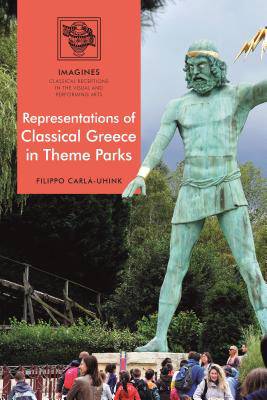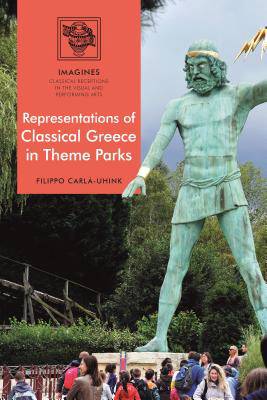
- Retrait gratuit dans votre magasin Club
- 7.000.000 titres dans notre catalogue
- Payer en toute sécurité
- Toujours un magasin près de chez vous
- Retrait gratuit dans votre magasin Club
- 7.000.0000 titres dans notre catalogue
- Payer en toute sécurité
- Toujours un magasin près de chez vous
Description
Theme park studies is a growing field in social and cultural studies. Nonetheless, until now little attention has been dedicated to the choice of the themes represented in the parks and the strategies of their representation. This is particularly interesting when the theme is a historical one, for example ancient Greece. Which elements of classical Greece find their way into a theme park and how are they chosen and represented? What is the "entertainment" element in ancient Greek history, culture and myth, which allows its presence in commercial structures aiming to people's fun? How does the representation of Greece change against different cultural backgrounds, e.g. in different European countries, in the USA, in China?
This book frames a discussion of these representations within the current debates about immersive spaces, uses of history and postmodern aesthetics, and analyses how ancient Greece has been represented and made "enjoyable" in seven different theme parks across the world, providing an original and ground-breaking contribution to theme park studies and classical reception.Spécifications
Parties prenantes
- Auteur(s) :
- Editeur:
Contenu
- Nombre de pages :
- 280
- Langue:
- Anglais
- Collection :
Caractéristiques
- EAN:
- 9781474297844
- Date de parution :
- 16-04-20
- Format:
- Livre relié
- Format numérique:
- Genaaid
- Dimensions :
- 156 mm x 234 mm
- Poids :
- 557 g

Les avis
Nous publions uniquement les avis qui respectent les conditions requises. Consultez nos conditions pour les avis.






